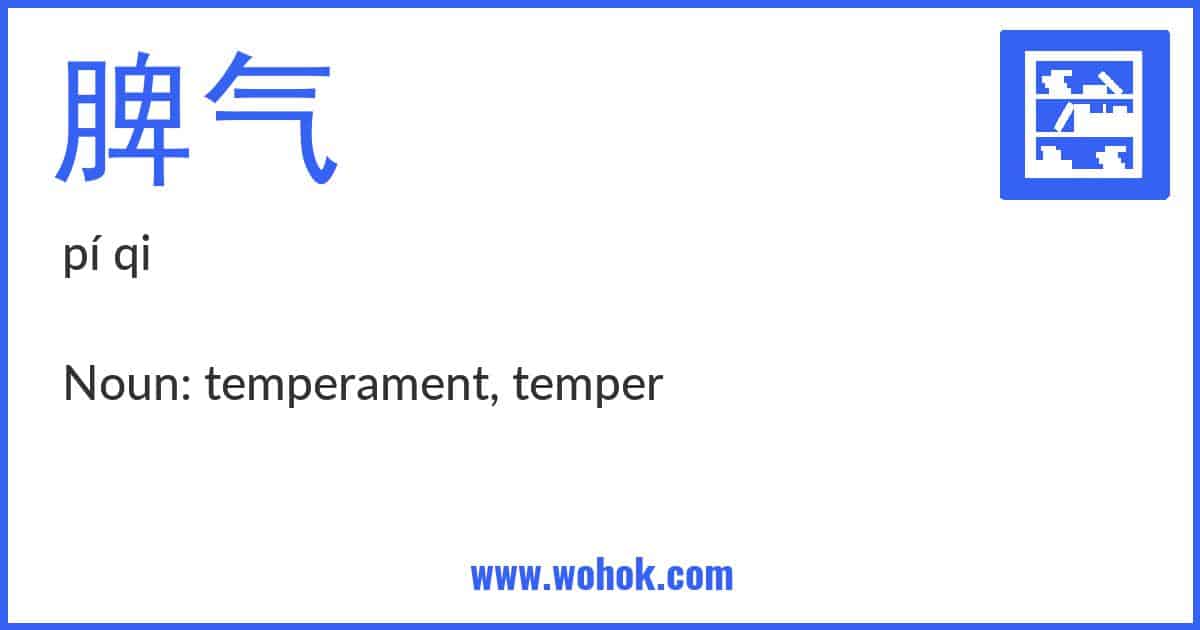The Chinese word 脾气 refers to a person’s temperament or disposition. It can be used to describe someone’s emotional tendencies, such as being hot-headed, quick-tempered, or moody. It can also refer to someone’s general personality traits, such as being easy-going, stubborn, or sensitive. This word is commonly used in everyday conversations and is an important aspect of understanding Chinese culture and social interactions.
Translation
Noun: temperament, temper
Pronunciation
Example Sentences
| Chinese | Pinyin | Engish |
|---|---|---|
| 他的脾气很暴躁 | tā de píqì hěn bàozào | His temper is very irritable |
| 她的脾气很好,从不发脾气 | tā de píqì hěn hǎo, cóng bù fā píqì | Her temper is very good and she never loses her temper |
| 我的父亲脾气很古怪,时而好,时而坏 | wǒ de fùqīn píqì hěn gǔguài, shí’érbù hǎo, shí’érbù huài | My father’s temper is very strange, sometimes good, sometimes bad |
| 他的脾气很冷静,从不轻易发火 | tā de píqì hěn lěngjìng, cóng bù qīngyì fāhuǒ | His temper is very calm and he never gets angry easily |
| 她的脾气很温和,总是能够理解别人 | tā de píqì hěn wēnhé, zǒng shì nénggòu lǐjiě biérén | Her temper is very gentle and she always understands others |
| 我的儿子脾气很倔强,不爱听别人的话 | wǒ de érzi píqì hěn juéjiàng, bù ài tīng biérén de huà | My son’s temper is very stubborn and he doesn’t like to listen to others |
HSK
脾气 is part of HSK Level 4 in HSK 2.0. In the newer HSK 3.0 it is part of HSK Level 5.
Learning Card


